Do you find it challenging to get out of bed and start your day? Most of us wake up feeling groggy and disoriented, struggling to shake off the remnants of sleep. Let’s explore sleep inertia meaning, sleep inertia treatment and the science behind it. So grab a cup of coffee and join us as we unravel the mysteries of the morning fog.
What is Sleep Inertia?
Sleep inertia meaning: Sleep inertia refers to the state of grogginess, disorientation, and impaired cognitive function experienced immediately upon waking up from sleep.
So exactly what is sleep inertia? It is that period when you feel mentally sluggish and find it difficult to fully transition from a sleep state to a fully awake and alert state. During this time, your brain struggles to transition from sleep to wakefulness, leading to a temporary decline in cognitive performance.
When you wake up, your brain undergoes a process of transitioning from sleep to wakefulness. During this transition, various physiological changes occur in the brain, including the gradual increase in activity of wake-promoting neurotransmitters like serotonin and norepinephrine, and the decrease in sleep-promoting neurotransmitters like adenosine.
Sleep inertia is most likely to occur when you are awakened during the deeper stages of sleep, such as slow-wave sleep (SWS) or rapid eye movement (REM) sleep.
Related: How To Wake Up Refreshed And Rested: 5 Tips That Actually Work
If you are abruptly awakened from these stages, your brain has to quickly shift from a state of deep relaxation and reduced brain activity to a state of heightened alertness and cognitive function required for wakefulness. This transition can take time, resulting in the experience of sleep inertia.
The severity and duration of sleep inertia can vary from person to person. Some individuals might shake off the grogginess within a few minutes, while others may experience its effects for up to several hours.
Factors such as sleep quality, sleep duration, sleep debt, and individual differences in circadian rhythms can influence the intensity and duration of sleep inertia.
To understand sleep inertia meaning, you must realize that it is a temporary state that naturally dissipates as your brain fully transitions to wakefulness. Engaging in gentle activities, exposing yourself to light, and allowing yourself some time to awaken gradually can help minimize the effects of sleep inertia and promote a smoother transition to a fully awake state.
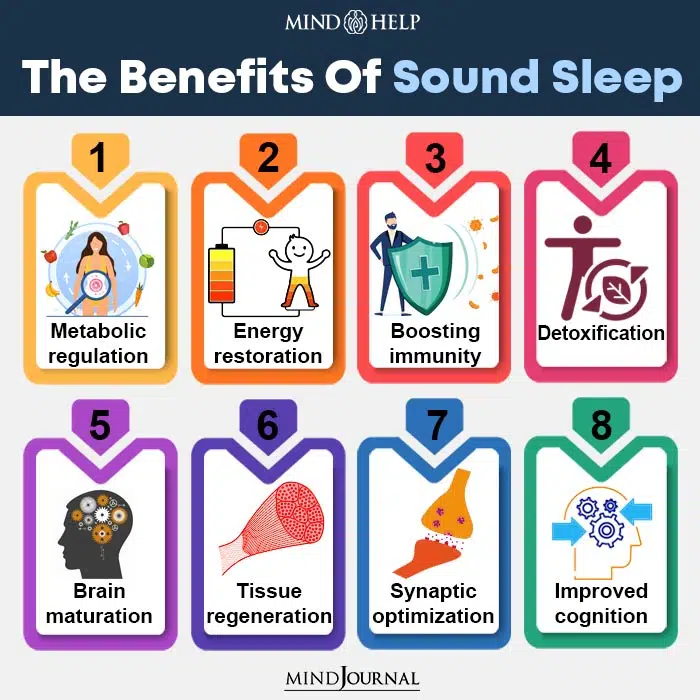
The Transition to Wakefulness
As the morning progresses, sleep inertia naturally dissipates as your brain fully transitions to a wakeful state. Engaging in mentally stimulating activities, such as reading or solving puzzles, can help accelerate the process and restore optimal cognitive functioning.
Now that we know what is sleep inertia, let’s explore how it is associated with sleep cycles.
Sleep Inertia Meaning and Sleep Cycles
Sleep inertia is closely tied to sleep cycles. Sleep cycles consist of different stages, including non-rapid eye movement (NREM) sleep and rapid eye movement (REM) sleep. NREM sleep is further divided into several stages, with deep slow-wave sleep (SWS) being the deepest stage.
When you wake up during the deeper stages of sleep, such as SWS or REM sleep, you are more likely to experience sleep inertia. This is because these stages are associated with reduced brain activity and relaxation, and your brain needs time to transition from this state to a fully awake and alert state.
The duration of sleep inertia can vary depending on the sleep stage you awaken from. If you wake up during lighter stages of sleep, such as stage 1 or stage 2 NREM sleep, the effects of sleep inertia may be milder and resolve more quickly.
Understanding your sleep cycles and timing your wake-up accordingly can help minimize the impact of sleep inertia. Tools like sleep monitoring devices or apps that track your sleep stages can provide insights into your sleep patterns.
It can allow you to set alarms for times when you are more likely to wake up during lighter sleep stages, reducing the intensity of sleep inertia upon awakening.
Factors Affecting Sleep Inertia
According to sleep inertia meaning, several factors can influence the severity and duration of sleep inertia, such as –
1. Sleep Duration
The longer you sleep, the more likely you are to experience pronounced sleep inertia. Waking up from a deep, extended sleep can leave you feeling more groggy compared to waking up from a shorter sleep duration.
2. Sleep Quality
Poor-quality sleep, characterized by frequent awakenings or disruptions, can exacerbate sleep inertia. Achieving restful and uninterrupted sleep can help reduce its effects.
3. Sleep Environment
External factors such as noise, light, and temperature can disrupt your sleep, making sleep inertia more intense. Creating a comfortable and conducive sleep environment can minimize its impact.
Related: Waking Up Between 3 and 5 am Often Can Be A Sign Of Spiritual Awakening
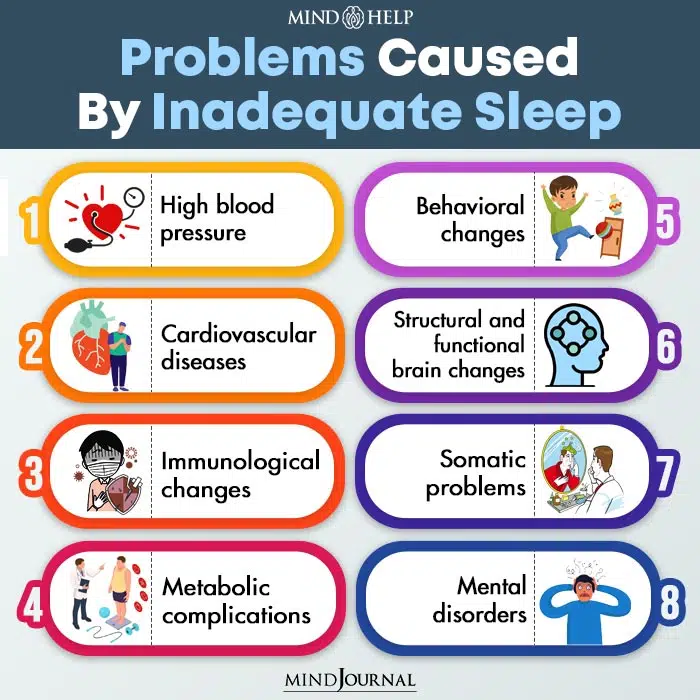
The Physiological Mechanisms
Sleep inertia is a result of complex physiological processes occurring in the brain. When you wake up, your brain gradually shifts from a state of sleep to one of wakefulness.
During this transition, the neurotransmitters responsible for promoting wakefulness—such as serotonin and norepinephrine—gradually increase in activity, while sleep-promoting neurotransmitters like adenosine decrease.
Impact on Cognitive Performance
According to sleep inertia meaning, this phenomenon can have a significant impact on cognitive performance. When you experience sleep inertia upon waking up, your cognitive functioning may be temporarily impaired, leading to difficulties in various aspects of cognitive performance.
Understanding what is sleep inertia is not enough. We must also understand the impact it has on us. Here are some specific impacts sleep inertia can have on cognitive performance:
1. Slowed Reaction Times
Sleep inertia can cause delays in processing information and responding to stimuli. Your ability to react quickly and make rapid decisions may be compromised, leading to slower reaction times.
2. Impaired Attention and Concentration
Sleep inertia can make it challenging to maintain focus and sustain attention on tasks. You may find it difficult to concentrate on complex or demanding cognitive activities, leading to decreased productivity and increased errors.
3. Reduced Memory and Learning
Sleep inertia can hinder memory consolidation and the ability to retain and recall information. Learning new material or remembering details from prior learning may be more difficult, impacting cognitive performance in academic, professional, or personal settings.
4. Decreased Problem-Solving Abilities
Sleep inertia meaning reveals that it can impair problem-solving skills and critical thinking. It may be harder to analyze and evaluate information, generate creative solutions, and make logical connections between concepts.
5. Impaired Decision-Making
Sleep inertia can affect your judgment and decision-making abilities. You may struggle to assess situations accurately, weigh pros and cons, and make sound choices. This can lead to suboptimal decision-making and potential negative consequences for productivity and outcomes.
6. Reduced Mental Flexibility
Sleep inertia can make it harder to switch between tasks or adapt to changing circumstances. Your ability to shift attention and engage in multitasking may be compromised, impacting cognitive flexibility and overall performance.
7. Impaired Verbal Fluency and Communication
Sleep inertia can affect verbal fluency and communication skills. Finding the right words, articulating thoughts clearly, and maintaining coherent conversations may be more challenging, hindering effective communication and collaboration.
It’s important to note that the severity and duration of sleep inertia can vary among individuals and can be influenced by factors such as sleep quality, sleep duration, and individual differences in circadian rhythms.
Prioritizing sufficient and restful sleep, implementing effective sleep hygiene practices, and allowing yourself time to fully wake up can help minimize the impact of sleep inertia on cognitive performance.
Related: 5 Strategies To Perfect Your Morning Routine And Make Every Day a Good Day
Sleep Inertia Treatment
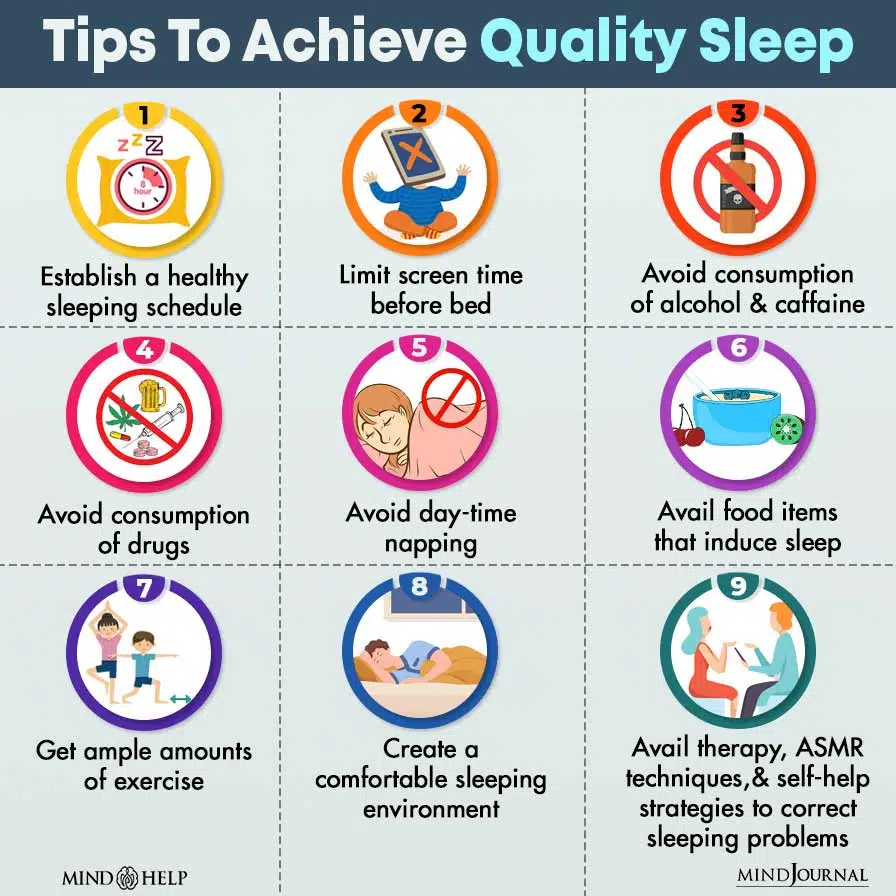
As per to sleep inertia meaning, it is a natural phenomenon that typically resolves on its own as you fully wake up. But there are several strategies you can employ to reduce its effects and facilitate a smoother transition from sleep to wakefulness.
Here are some sleep inertia treatment approaches for managing sleep inertia:
1. Gradual Awakening
Allow yourself some additional time between waking up and engaging in mentally demanding activities.
This buffer period allows your brain to gradually transition from sleep to wakefulness, reducing the intensity of sleep inertia. Consider setting your alarm a bit earlier to give yourself this extra time.
2. Morning Rituals
Incorporate gentle and calming activities into your morning routine to help ease the transition from sleep to wakefulness.
Stretching, deep breathing exercises, or listening to calming music can help awaken your mind gradually and shake off the grogginess associated with sleep inertia.
3. Light Exposure
Exposure to natural sunlight or bright indoor lighting can help suppress the sleep-inducing hormone melatonin and promote wakefulness. Open your curtains or blinds to let in natural light, or consider using a light therapy lamp designed to simulate daylight.
Light exposure in the morning can help reset your internal body clock and reduce the duration of sleep inertia.
4. Hydration and Nutrition
Start your day with a glass of water to rehydrate your body after a night of sleep. A balanced breakfast with a mix of protein, complex carbohydrates, and healthy fats can provide you with the necessary energy and nutrients to kickstart your day and combat the effects of sleep inertia.
5. Physical Activity
When you better understand sleep inertia meaning, you realize the value of being physically active. Engaging in light physical activity or exercise shortly after waking up can help increase blood flow, oxygenate your brain, and stimulate alertness.
Consider going for a brisk walk, doing some gentle stretching, or engaging in a short workout session to help shake off the remnants of sleep inertia.
6. Avoid Stimulants
While it may be tempting to reach for a strong cup of coffee or other caffeinated beverages to combat sleep inertia, it’s important to be mindful of their potential effects on your sleep quality and overall sleep routine.
If you do choose to consume caffeine, do so in moderation and preferably later in the morning to avoid disrupting your sleep patterns later in the day.
7. Consistent Sleep Schedule
Establishing a regular sleep schedule and ensuring adequate sleep duration can minimize the occurrence of sleep inertia. Aim for a consistent bedtime and wake-up time, even on weekends, to help regulate your body’s internal clock and promote more restful sleep.
8. Optimize Sleep Environment
Create a sleep environment that is conducive to quality sleep. Ensure your bedroom is cool, quiet, and dark.
Use blackout curtains or eye masks to block out excess light, earplugs or white noise machines to mask disruptive sounds, and consider investing in a comfortable mattress and pillows that support good sleep posture.
9. Seek Professional Help
If you consistently experience severe sleep inertia or have ongoing difficulties with sleep quality, it may be beneficial to consult a healthcare professional or sleep specialist.
They can help identify and address any underlying sleep disorders or conditions that may be contributing to your sleep inertia.
Remember, everyone’s experience with sleep inertia can vary, and it may take some trial and error to find the strategies that work best for you. By pursuing sleep inertia treatment, prioritizing healthy sleep habits and implementing these techniques, you can minimize the impact of sleep inertia and start your day on a more alert and productive note.
Related: Do You Often Keep Waking Up At Night At Certain Hours? This Is What It Really Means
Takeaway
Sleep inertia is a common phenomenon experienced by many upon waking up, characterized by grogginess and impaired cognitive performance. By understanding the science behind sleep inertia meaning and implementing effective strategies, we can minimize its impact and start our days on a more alert and productive note.
Remember, a good night’s sleep and a mindful awakening can help you conquer the morning fog and embrace the day with renewed energy and focus.
Frequently Asked Questions (FAQs):
How do I stop sleep inertia?
Reduce sleep inertia by maintaining a consistent sleep schedule, exposing yourself to light in the morning, and avoiding sudden awakenings.
Is sleep inertia a bad thing?
Sleep inertia is not inherently bad; it’s a natural groggy feeling upon waking. It usually fades within 30 minutes.
Is it normal to have sleep inertia everyday?
Experiencing sleep inertia daily may indicate a sleep disorder or inadequate sleep. Consult a healthcare professional for evaluation and guidance.
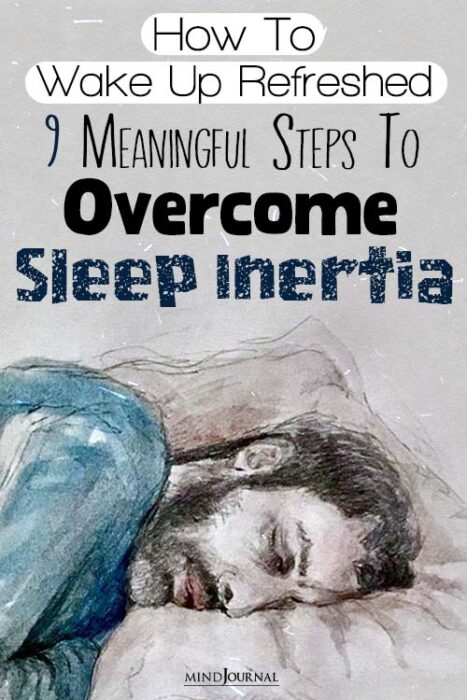
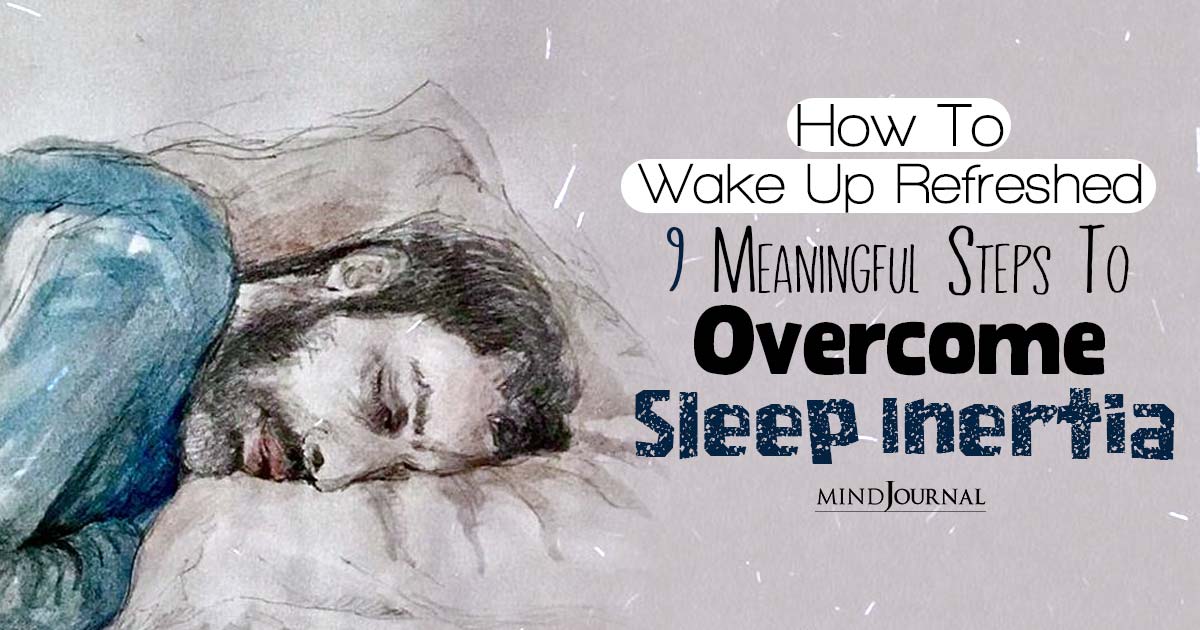





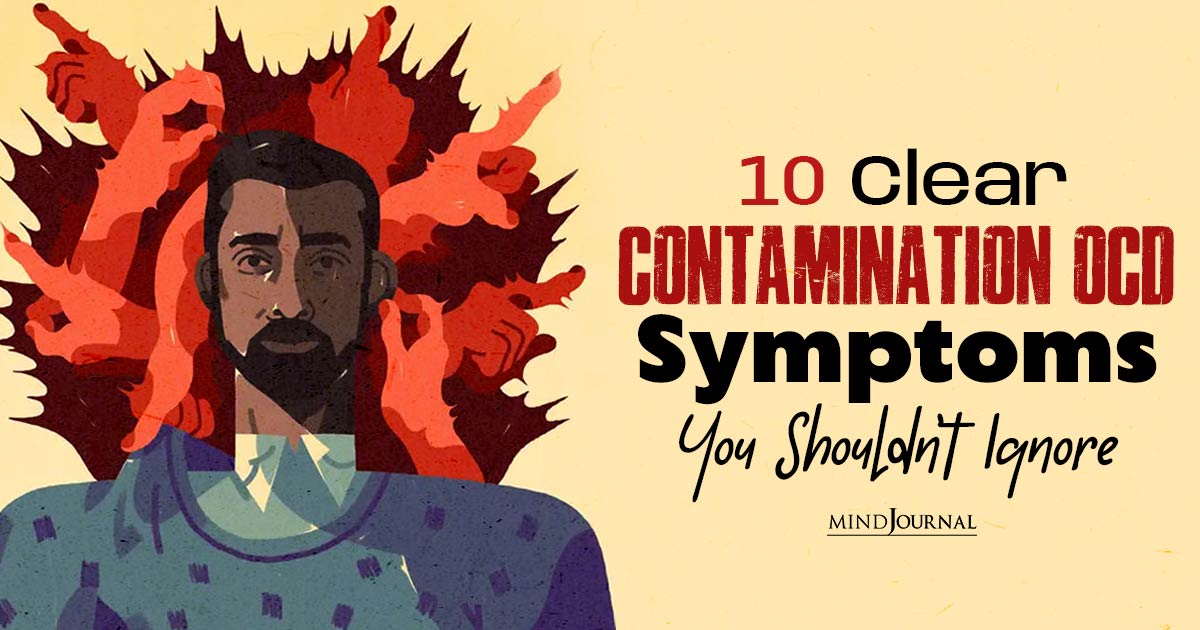

Leave a Reply
You must be logged in to post a comment.